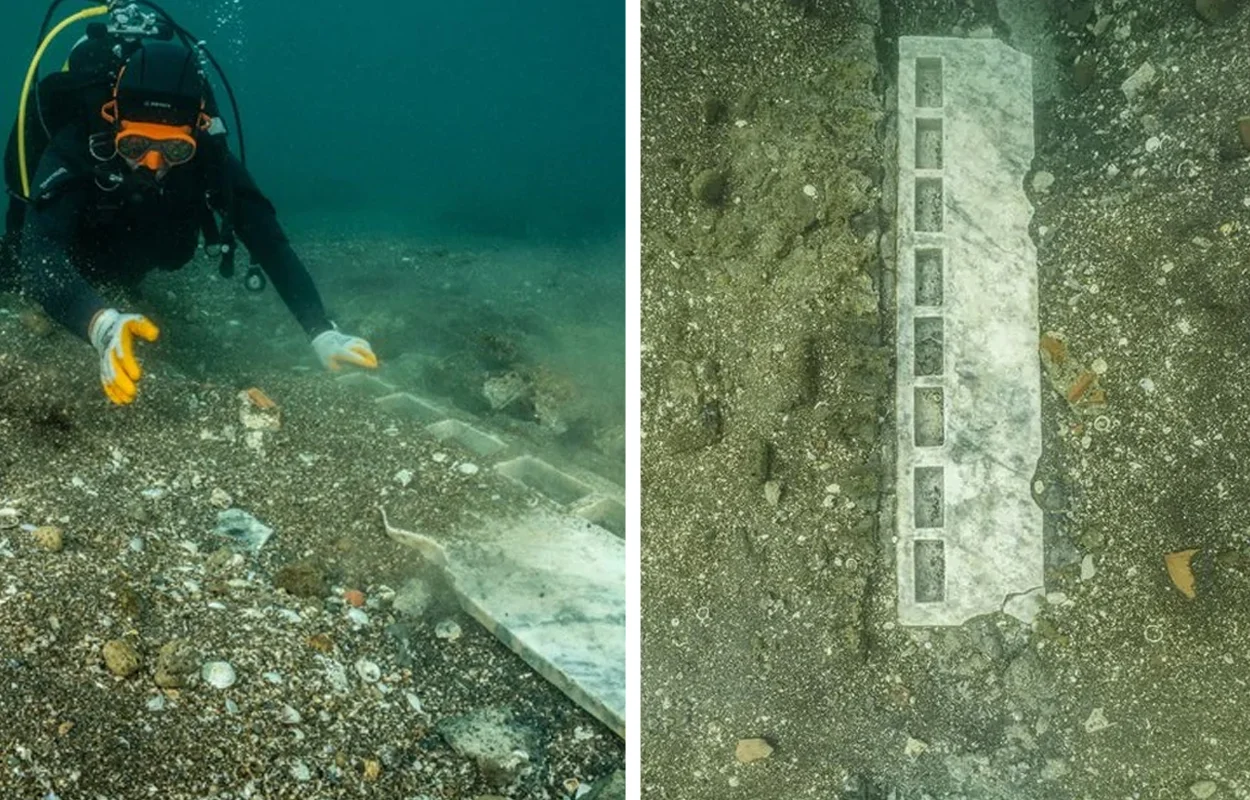Underwater archaeologists have identified a submerged temple of the Nabataeans, with the discovery of two marble altars from the Roman period.
The temple remains are located off the coast of Pozzuoli, situated on the Phlegrean Peninsula in the Italian region of Campania.
During the Roman period, the Nabataean kingdom was an ally of Rome that ruled a territory stretching from the Euphrates to the Red Sea. The kingdom served as a bulwark between Rome and the wild hordes of the desert, centred on the capital city of Petra.
At the time, Pozzuoli, known as Puteoli in antiquity, was the main hub for goods exported from Campania. The Nabataeans established a base at Puteoli and constructed a shrine dedicated to the tutelary god, Dusares.
Due to the position of Puteoli in the Phlegraean Fields, an active and volatile volcanic region, local volcanic bradyseismic activity raised and lowered the geology on the peninsula that resulted in parts of Puteoli being submerged.
In a press announcement by the Minister for Civil Protection and Marine Policies, Nello Musumeci, and the Minister of Culture, Gennaro Sangiuliano, two marble altars from the early 1st century AD where unveiled that were part of a now submerged temple complex constructed by the Nabataeans.
Minister Sangiuliano said: “Ancient Puteoli reveals another of its treasures which testifies to the richness and vastness of commercial, cultural and religious exchanges in the Mediterranean basin in the ancient world.”
Through an underwater study, the altars have enabled the team to pinpoint the location of the temple on the vicus Lartidianus, part of the city where foreign people engaged in trade and business. The study has also given new evidence that reveals the road axes of the ancient port and buildings of the Imperial administration.
Header Image Credit : Ministero della cultura





